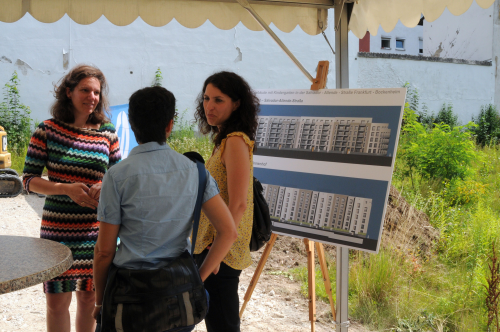
The idea of extracting heat from domestic wastewater, while simultaneously making use of the so-called greywaterfrom the kitchen and bathroom, is not new. However, the technology used in the passive house in Frankfurt’s Salvador-Allende-Street goes a step further.
“By recovering heat from wastewater, we can close the last ‘energy gap’ in the passive house,” said Dr. Martina
Winker of the Institute for Social-Ecological Research (ISOE). She is head of the research project,netWORKS 3, which ispioneering the use of the innovative wastewater technology.
There are also plans for recycling greywater. This is done by first separating the slightly dirty water from the bathrooms from the remaining wastewater and then cleaning and disinfecting it with the help of microorganisms and UV radiation.
Passive house This water is fed back into half of the apartments in the new passive house, to be used for flushing toilets. “The
advantage of this new method is that it conserves drinking water. The field trial is the first of its kind in Frankfurt, and in all of Germany, it is one of the largest implementations of its kind in a building,” said Dr
Winker.
Sustainable drainage systems Recovering heat directly in a building offers significant advantages over other solutions. If the heat is recovered
in the sewer, the owners of the building and of the sewer need to come to an agreement.And this can be a tedious
process.
“In one single building, things can be coordinated without these kinds of processes,” said Jens Libbe from the
German Institute of Urban Affairs (Difu), a collaborative partner in netWORKS 3. “The energy yield is also significantly higher, since no heat is lost on the way to the sewer, making it no longer usable.”






